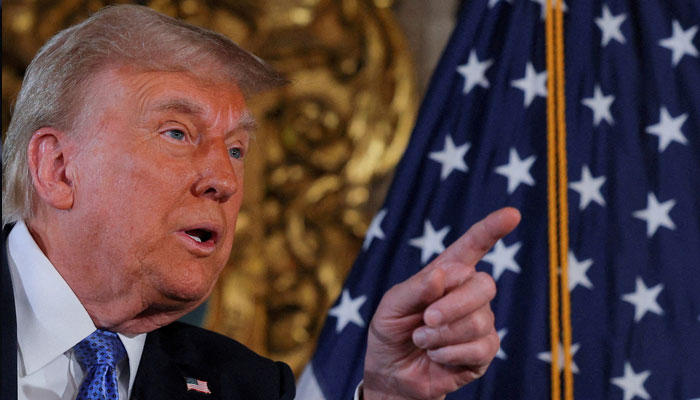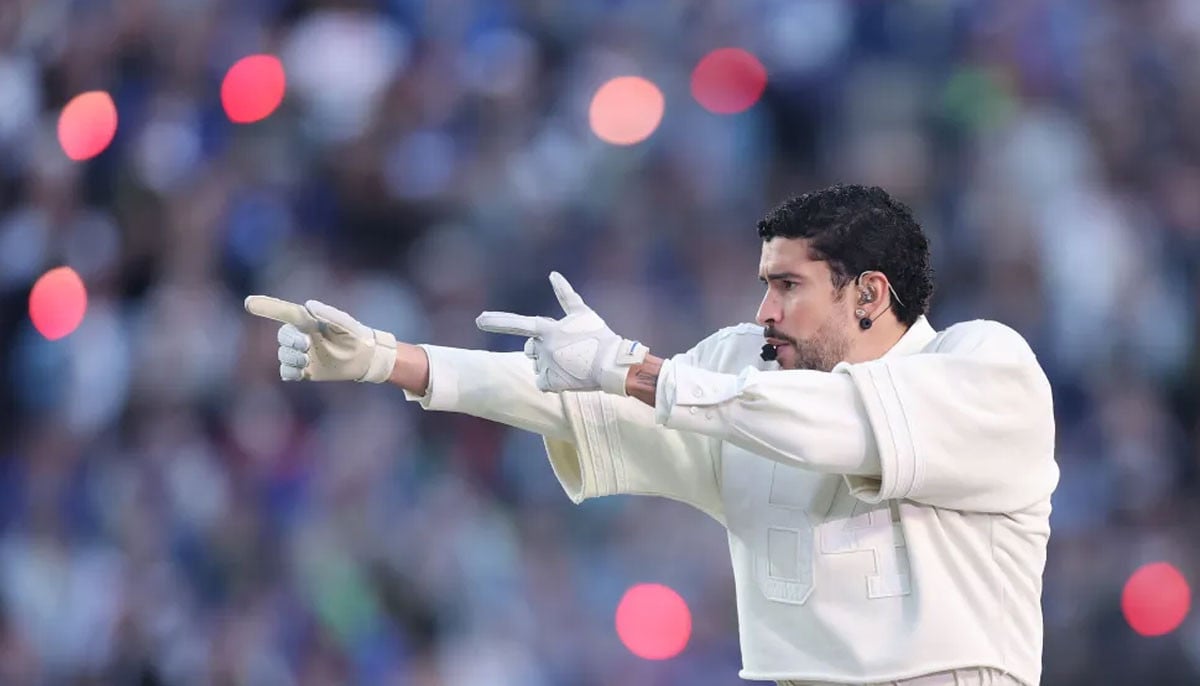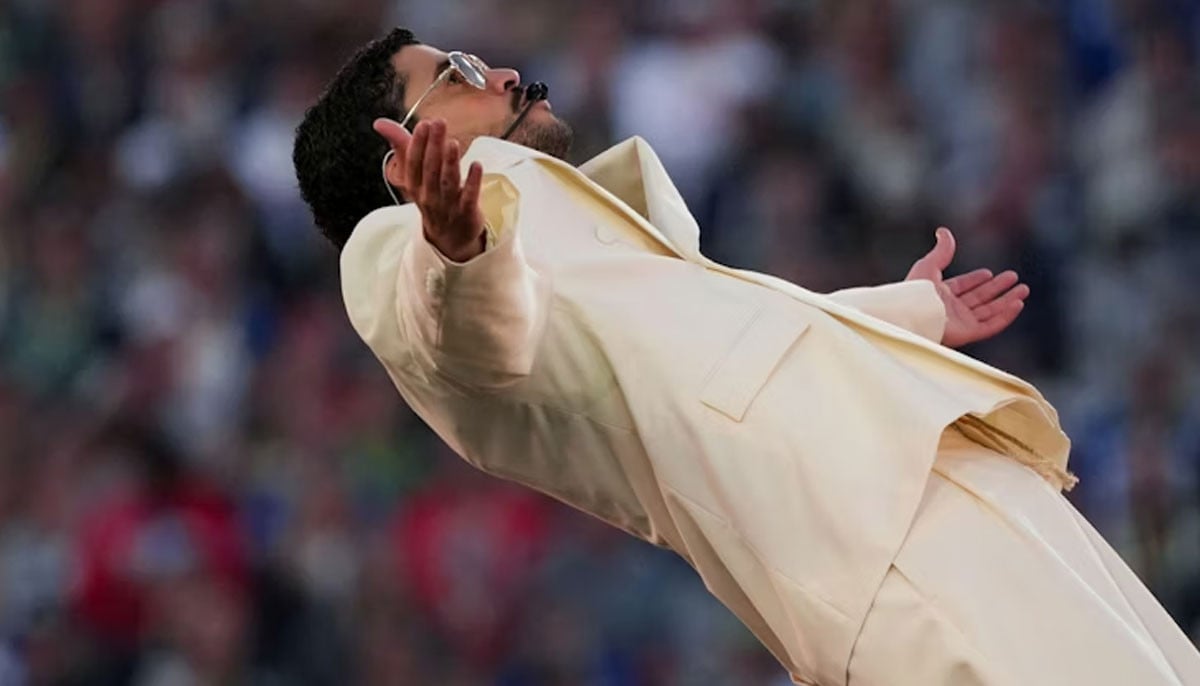House rejects Trump-backed spending deal as shutdown looms
Trump urged lawmakers to tie up loose ends before he takes office, but Republicans refused to support package
The United States House of Representatives on Thursday rejected a spending bill backed by President-elect Donald Trump as numerous Republicans defied him, raising concerns over an impending government shutdown.
The vote highlights divisions within Trump's Republican Party, foreshadowing potential challenges ahead when they assume control of the White House and both chambers of Congress next year.
Despite Trump urging lawmakers to finalise budget agreements before his inauguration on January 20, conservative members opposed the proposal, citing concerns over increased spending and its implications for the national debt, which currently stands at $36 trillion.
"I am absolutely sickened by a party that campaigns on fiscal responsibility and has the temerity to go to the American people and say you think this is fiscally responsible," said Republican Representative Chip Roy, one of 38 Republicans who voted against the bill.
The package failed by a vote of 174-235 just hours after it was hastily assembled by Republican leaders seeking to comply with Trump's demands. A prior bipartisan deal was scuttled after Trump and the world's richest person Elon Musk came out against it on Wednesday.
Republican House Speaker Mike Johnson provided no details when reporters asked him about next steps after the failed vote.
"We will come up with another solution," he said.
Government funding is due to expire at midnight on Friday. If lawmakers fail to extend that deadline, the US government will begin a partial shutdown that would interrupt funding for everything from border enforcement to national parks and cut off paychecks for more than 2 million federal workers.
The US Transportation Security Administration warned that travelers during the busy holiday season could face long lines at airports.
The bill that failed on Thursday largely resembled the earlier version that Musk and Trump had blasted as a wasteful giveaway to Democrats. It would have extended government funding into March and provided $100 billion in disaster relief and suspended the debt.
Republicans dropped other elements that had been included in the original package, such as a pay raise for lawmakers and new rules for pharmacy benefit managers.
At Trump's urging, the new version also would have suspended limits on the national debt for two years — a maneuver that would make it easier to pass the dramatic tax cuts he has promised.
Johnson before the vote told reporters that the package would avoid disruption, tie up loose ends and make it easier for lawmakers to cut spending by hundreds of billions of dollars when Trump takes office next year.
"Government is too big, it does too many things, and it does few things well," he said.
Budget-busting tax cut
Democrats blasted the bill as a cover for a budget-busting tax cut that would largely benefit wealthy backers such as Musk, the world's richest person, while saddling the country with trillions of dollars in additional debt.
"How dare you lecture America about fiscal responsibility, ever?" House Democratic Leader Hakeem Jeffries said during floor debate.
Even if the bill had passed the House, it would have faced long odds in the Senate, which is currently controlled by Democrats. The White House said Democratic President Joe Biden did not support it.
Previous fights over the debt ceiling have spooked financial markets, as a US government default would send credit shocks around the world. The limit has been suspended under an agreement that technically expires on January 1, though lawmakers likely will not have to tackle the issue before the spring.
When he returns to office, Trump aims to enact tax cuts that could reduce revenues by $8 trillion over 10 years, which would drive the debt higher without offsetting spending cuts. He has vowed not to reduce retirement and health benefits for seniors that make up a vast chunk of the budget and are projected to grow dramatically in the years to come.
The last government shutdown took place in December 2018 and January 2019 during Trump's first White House term.
The unrest also threatened to topple Johnson, a mild-mannered Louisianan who was thrust unexpectedly into the speaker's office last year after the party's right flank voted out then-Speaker Kevin McCarthy over a government funding bill. Johnson has repeatedly had to turn to Democrats for help in passing legislation when he has been unable to deliver the votes from his own party.
He tried the same maneuver on Thursday, but this time fell short.
Several Republicans said they would not vote for Johnson as speaker when Congress returns in January, potentially setting up another tumultuous leadership battle in the weeks before Trump takes office.
-
Poll reveals majority of Americans' views on Bad Bunny
-
Man convicted after DNA links him to 20-year-old rape case
-
California cop accused of using bogus 911 calls to reach ex-partner
-
'Elderly' nanny arrested by ICE outside employer's home, freed after judge's order
-
key details from Germany's multimillion-euro heist revealed
-
Search for Savannah Guthrie’s abducted mom enters unthinkable phase
-
Barack Obama addresses UFO mystery: Aliens are ‘real’ but debunks Area 51 conspiracy theories
-
Rosie O’Donnell secretly returned to US to test safety












